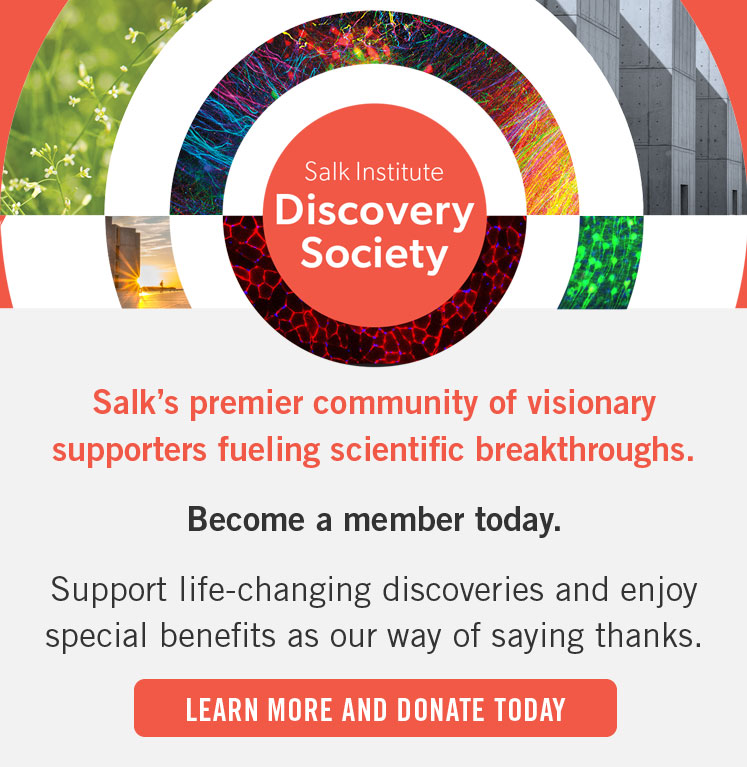Special Feature Science comes alive for high schoolers and educators at Salk
This year’s High School Science Day at the Salk Institute marked a milestone in community engagement and student inspiration. With the highest participation in the event’s history, the day welcomed 205 students to experience firsthand the wonder of science in action. The event, powered by the enthusiasm and generosity of 105 Salk volunteers, offered a rare glimpse into the inner workings of a world-class research institute and left a lasting impression on everyone who attended.
High School Science Day
More than just a field trip, Science Day proved to be a transformative experience. Ninety-eight percent of students reported feeling either the same or more interested in pursuing a career in science. The day was filled with moments of discovery, connection, and empowerment, as students engaged directly with Salk scientists, toured labs, and explored career paths that had previously seemed out of reach or unimaginable.
One of the event’s most enduring supporters is Robert Manroe, a biology teacher at Castle Park High School in Chula Vista. For 20 years, Manroe has brought students to the Salk Institute’s Science Day. With 35 years in the classroom, he currently teaches advanced biology and sees the event as an essential supplement to his curriculum.
“When I teach, my students just assume it’s limited to the classroom,” he says. “Research is spoken about very abstractly, but Salk makes it a reality.”
That tangible connection to science is precisely what resonated with students. Many described the most powerful aspect of the day as the opportunity to interact directly with scientists who were not only deeply knowledgeable but also approachable, relatable, and passionate.
“The most impactful moment was seeing how down-to-earth the scientists and researchers are,” one student shared. “It makes the field seem a lot more achievable.”
Others noted how the event reframed their understanding of career paths in science. “Talking to the scientists and hearing the panelists talk about all the paths they took to get where they are made me realize higher education doesn’t have to be linear,” said another student. “I’m not already locked into a specific future just because I chose a certain major.”
1991 High School Science Day to Now
For Brad Hirakawa, the 1991 High School Science Day offered a moment of personal transformation. In a video from the Salk archives, bright-eyed teenage Hirakawa reflects on the day, “It enhanced my way of thinking. Now I’m more interested in science.” He continues, “It’s motivation. You see what you can do, what you’re capable of. I look up to them. I hope someday I can be that.”
Now the director of Drug Safety Strategy and Operations at a local pharmaceutical company, Hirakawa credits the event with launching his scientific journey.
“As a high school student from Chula Vista High, I had the rare and unforgettable opportunity to attend a student outreach event at the Salk Institute with my AP Biology teacher and now long-time friend, Steve Rodecker,” he recalls. “That experience profoundly shaped the course of my life. Meeting scientific giants like Francis Crick and Jonas Salk, who took the time to speak with us young students, sparked in me a deep and lasting passion for science. That day opened the door to my life in science, and I remain deeply grateful.”
High School Science Day is more than a one-day event; it’s a catalyst for curiosity and a launchpad for future scientists.
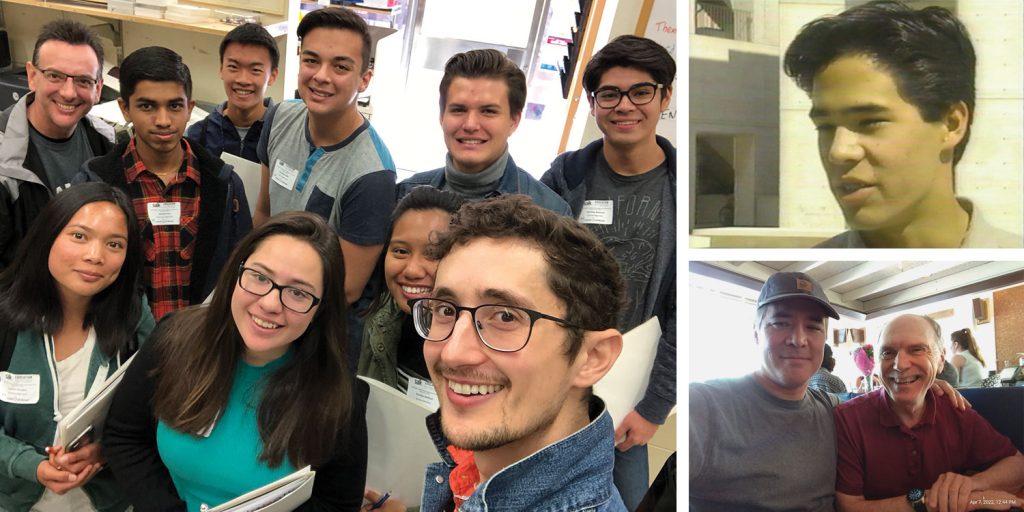
Left: Biology teacher Robert Manroe (back row left) accompanying a group of students attending Salk’s High School Science Day in 2018.
Top Right: Brad Hirakawa interviewed at Salk during High School Science Day in 1991, while attending as a student.
Bottom Right: Hirakawa and his high school science teacher, Mr. Rodecker, who brought him to High School Science Day, try to get together at least once a year for lunch.
Ellen Potter Teacher Symposium
A mid-morning hush falls over the Conrad T. Prebys Auditorium as the first slide of a research talk flashes on the screen. Teachers lean in and scribble notes, and occasionally snap photos of the data being presented. They’re not here to grade papers or collect attendance this time.
Robert Manroe, who brings his students to High School Science Day, leads by example and opts to spend a day as a student at Salk’s Ellen Potter Teacher Symposium.
Named in honor of neurobiologist Ellen Potter, a longtime Salk scientist and champion of public education, the symposium reflects the Institute’s deep belief that science education shouldn’t stop at the lab bench or stay behind closed doors. Potter herself, who mentored generations of researchers, is known for her ability to translate complex ideas with warmth and clarity, especially to curious minds just entering the world of science.
Throughout the day, educators sit side-by-side with Salk scientists. They discuss neuroscience, genetics, plant biology, and regenerative medicine. Over lunch, lesson plans are swapped and email addresses exchanged. Hands-on activities, like CRISPR gene editing demos or pipetting practice, bring the excitement of the lab into the palm of a teacher’s hand.
“One of the drawbacks to teaching science is that once you’re settled, it’s easy for our content knowledge to become outdated,” says Manroe, with 35 years in the classroom under his belt. “It’s powerful to be there as an educator, to keep me sharp.” For Manroe, seeing cutting-edge research like CRISPR in action not only informs his teaching but makes it more tangible and exciting for students.
“It feeds us,” Manroe reflects on the day. “It helps us rediscover why we’re excited by the science and reminds us why we got into this field in the first place.” It serves as a reminder of their “why,” in a field that can become routine or burdened by administrative demands. This creates a ripple effect because an energized teacher fosters energized learners.
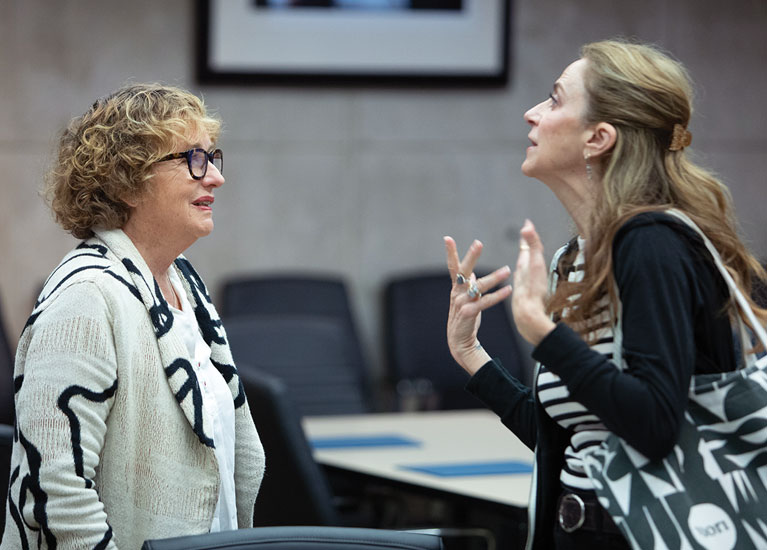
Ellen Potter (left) talks with high school teachers at her namesake annual symposium.
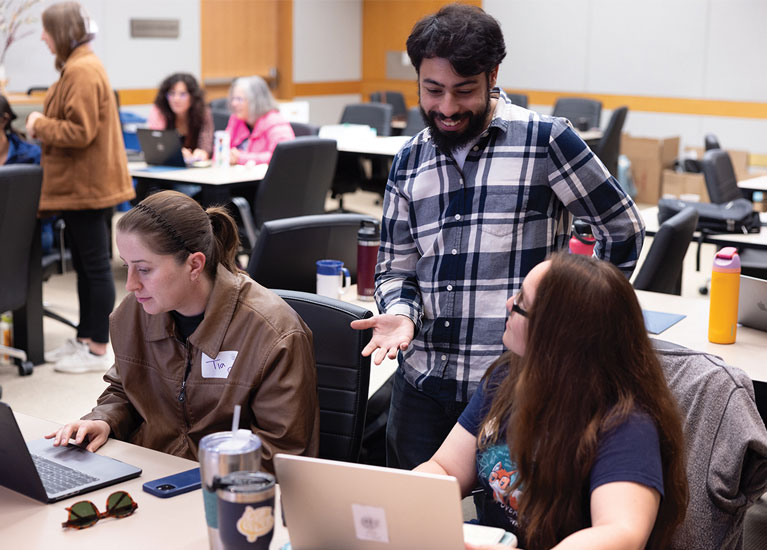
Salk Fellow Talmo Pereira (center) talks to two high school teachers attending the Ellen Potter Teacher Symposium.
Featured Stories
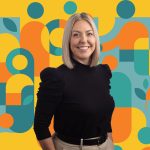 Michelle Chamberlain: Bringing together communities old and newChamberlain, whose lifelong commitment to others has shaped her journey to Salk, now serves as Salk’s vice president of External Relations, leading fundraising, communications, community engagement, foundation relations, and stewardship efforts.
Michelle Chamberlain: Bringing together communities old and newChamberlain, whose lifelong commitment to others has shaped her journey to Salk, now serves as Salk’s vice president of External Relations, leading fundraising, communications, community engagement, foundation relations, and stewardship efforts.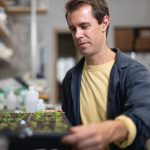 Joseph Swift: Saving potatoes, one road trip at a timeSwift, a plant biologist and startup co-founder, had an adventurous upbringing in Australia filled with natural beauty. Today, he uses plant genomics to tackle urgent questions in sustainability and agriculture.
Joseph Swift: Saving potatoes, one road trip at a timeSwift, a plant biologist and startup co-founder, had an adventurous upbringing in Australia filled with natural beauty. Today, he uses plant genomics to tackle urgent questions in sustainability and agriculture.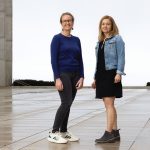 Building connections in cells, soils, and labsAssistant Professors Lena Mueller and Aga Kendrick joined the Salk Institute in January 2024 and November 2023. Less than two years later, their new labs are already celebrating their first published studies.
Building connections in cells, soils, and labsAssistant Professors Lena Mueller and Aga Kendrick joined the Salk Institute in January 2024 and November 2023. Less than two years later, their new labs are already celebrating their first published studies.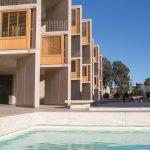 Empowering future scientists and advancing healthy aging researchThe Prebys Foundation empowers future scientists, while La Mer supports a fellowship advancing healthy aging research.
Empowering future scientists and advancing healthy aging researchThe Prebys Foundation empowers future scientists, while La Mer supports a fellowship advancing healthy aging research.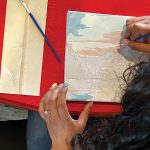 Community building with creativity and connections across SalkIn April, Salk’s Engagement & Wellbeing Week brought employees and trainees together for activities ranging from coffee hours to a paper airplane competition.
Community building with creativity and connections across SalkIn April, Salk’s Engagement & Wellbeing Week brought employees and trainees together for activities ranging from coffee hours to a paper airplane competition.






















































